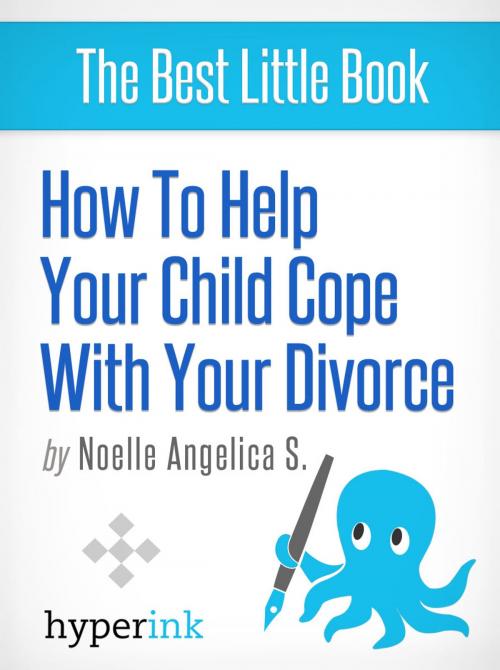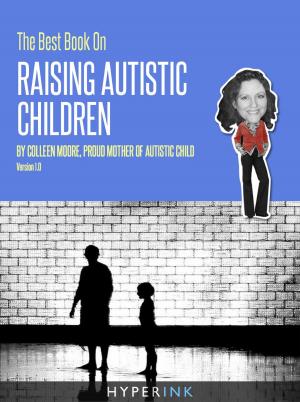How to Help Your Child Cope With Your Divorce
Nonfiction, Family & Relationships, Parenting, Child Care, Family Relationships, Divorce| Author: | Noelle Angelica | ISBN: | 9781614643982 |
| Publisher: | Hyperink | Publication: | March 5, 2012 |
| Imprint: | Language: | English |
| Author: | Noelle Angelica |
| ISBN: | 9781614643982 |
| Publisher: | Hyperink |
| Publication: | March 5, 2012 |
| Imprint: | |
| Language: | English |
This book is part of Hyperink's best little books series. This best little book is 4,200+ words of fast, entertaining information on a highly demanded topic. Based on reader feedback (including yours!), we may expand this book in the future. If we do so, we'll send a free copy to all previous buyers.
ABOUT THE BOOK
We can blame it on the media or on societal pressure exerted on women with unplanned pregnancies. We can lament the decline in society's moral fiber, or we can complain about the ever increasing strain that economic and social problems exert on families. We can point a finger to whichever factor we want, but nothing changes the fact that the breakup of marriages is quite a common occurrence. In fact, according to international statistics, the United States, for example, has consistently had a divorce to marriage rate of nearly 50% over the past decade.
We don't need a study or survey to tell us about the state of many marriages, though. Chances are, you know several people who are divorced, as well as families for whom unsuccessful marriages seem to be a legacy passed down from generation to generation. Therese*, 52 years old and a mother of two, felt as though she had been cursed. (*Names have been changed to protect the interviewees' privacy.)
"My grandparents were separated. My dad left my mom when I was in middle school, and this was really hard for me to accept. And then again I watched in terror as the marriages of my brothers and sisters started falling apart," she remembers. She was determined to break the cycle in her own family. "I tried to hold on even though I was extremely unhappy. Eventually, I just couldn't do it anymore, even if I didn't want my kids to experience what I had gone through," she explains.
EXCERPT FROM THE BOOK
In addition to emotional fatigue or even volatility, many parents also have to contend with the fact that they simply do not know how to help their children. Most parents may have all of the good intentions in the world, but this does not necessarily translate into action.
Of course, another thing that we will have to take into consideration is the existence of other factors that may have brought about the conflict between the two parents, or may be aggravating the existent situation. For instance, if there is violence involved, whether physical or verbal, the situation certainly becomes more difficult than it would otherwise be, and may require the intervention of mediators or other professionals.
Economic factors can also come into play and make circumstances more complicated for parents who are trying to get through this tough period with their children. For example, a separation may mean that the parent who usually supports the family will no longer be present and will therefore require the other parent to exert more effort to make ends meet, despite arrangements for child support. This can then cause a domino effect of putting the parties involved on edge and make it even more stressful for everyone, especially the children...
Buy a copy to keep reading!
This book is part of Hyperink's best little books series. This best little book is 4,200+ words of fast, entertaining information on a highly demanded topic. Based on reader feedback (including yours!), we may expand this book in the future. If we do so, we'll send a free copy to all previous buyers.
ABOUT THE BOOK
We can blame it on the media or on societal pressure exerted on women with unplanned pregnancies. We can lament the decline in society's moral fiber, or we can complain about the ever increasing strain that economic and social problems exert on families. We can point a finger to whichever factor we want, but nothing changes the fact that the breakup of marriages is quite a common occurrence. In fact, according to international statistics, the United States, for example, has consistently had a divorce to marriage rate of nearly 50% over the past decade.
We don't need a study or survey to tell us about the state of many marriages, though. Chances are, you know several people who are divorced, as well as families for whom unsuccessful marriages seem to be a legacy passed down from generation to generation. Therese*, 52 years old and a mother of two, felt as though she had been cursed. (*Names have been changed to protect the interviewees' privacy.)
"My grandparents were separated. My dad left my mom when I was in middle school, and this was really hard for me to accept. And then again I watched in terror as the marriages of my brothers and sisters started falling apart," she remembers. She was determined to break the cycle in her own family. "I tried to hold on even though I was extremely unhappy. Eventually, I just couldn't do it anymore, even if I didn't want my kids to experience what I had gone through," she explains.
EXCERPT FROM THE BOOK
In addition to emotional fatigue or even volatility, many parents also have to contend with the fact that they simply do not know how to help their children. Most parents may have all of the good intentions in the world, but this does not necessarily translate into action.
Of course, another thing that we will have to take into consideration is the existence of other factors that may have brought about the conflict between the two parents, or may be aggravating the existent situation. For instance, if there is violence involved, whether physical or verbal, the situation certainly becomes more difficult than it would otherwise be, and may require the intervention of mediators or other professionals.
Economic factors can also come into play and make circumstances more complicated for parents who are trying to get through this tough period with their children. For example, a separation may mean that the parent who usually supports the family will no longer be present and will therefore require the other parent to exert more effort to make ends meet, despite arrangements for child support. This can then cause a domino effect of putting the parties involved on edge and make it even more stressful for everyone, especially the children...
Buy a copy to keep reading!















